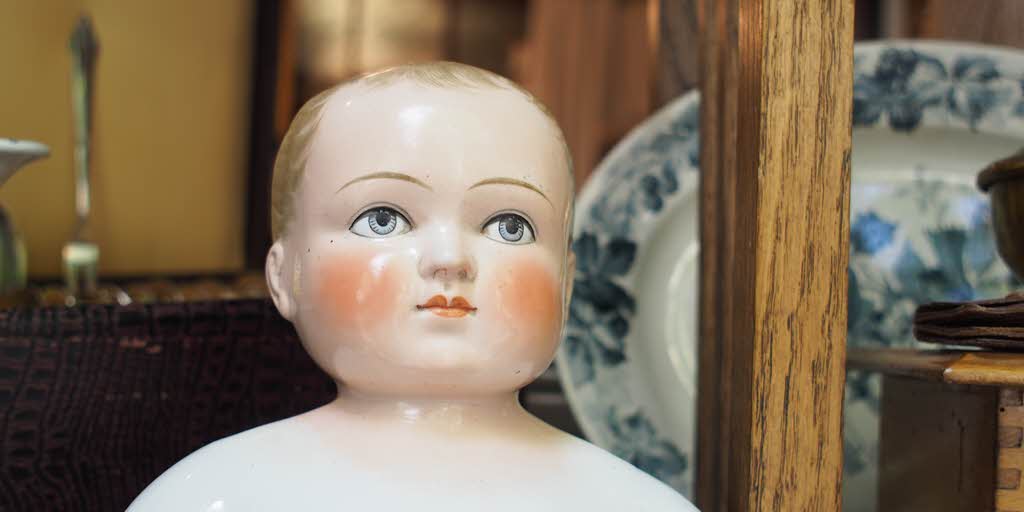Collecting Trash As Treasure

Do you like collecting things at yard sales, flea markets and even have a desire to salvage something from the trash? Do you also think that perhaps your collecting activities may also lead to problems?
Do you have a strong urge to purchase something you discover which you think is a great item? However, do you also have regrets when you take it home? You may examine the item in more detail at home and realize it is essentially a duplicate item in terms of form or function.
Do you feel remorse when you realize the item takes up too much space and realize you cannot resell it as it has little or no resale value?
Finally, do you have things at home that you never use? Do you conclude that the item you valued as a treasure is not a treasure? Yes, it can be gratifying to liberate objects from the trash. However, it is not a treasure if the item ends up in your trash.
Sometimes you find it easy to justify bringing items home that you discover in the trash or for free on the side of the road. You feel that there is no cost involved in taking the said item back to your home. However, perhaps there is a cost. Every time you seek out “gems” in the trash of others, you are spending your time looking for these gems. You may also be spending gas money traveling to places to discover the “gems of the trash heap”. Moreover, when select something from the trash and taking it home, this item takes up room in your attic, garage, or basement. You may also spend time and money cleaning up the item to make it look better than when you found it.
Here are seven questions to ask to identify whether something is genuinely trash or a genuine treasure. Evaluate any item with these seven trash-or-treasure questions.
Question: Do You Need It?
It seems obvious, but this is an excellent first question. It can be exciting to find something in good condition so compelling that you load it up. You need to stop and ask yourself – DO YOU NEED IT?
Suppose this new item is a duplicate of something you already have. In that case, you need to be truthful with yourself and realize that this item (whatever it is) may not be needed. You will therefore be storing something you will not be using. This means that YOU DON’T NEED IT!
Question: Would You Want It if You Had to Pay for It?
Free makes many things look a little better. You may like it if you do not have to pay for it. However, would you buy it if you discovered it in a store? If you are not willing to pay for it, then the answer is no. Please don’t take it home. You’ll end up with clutter that you don’t like or use. Eventually, you will decide you don’t want it anymore, and it will end up in your trash.
If you wouldn’t want it at any price, you shouldn’t take it because it is free. Leave it behind and make a proper decision on something else.
Question: Can You Put It to Use?
Let’s pretend you’re searching through a dumpster filled with items that once belonged to a tailor. You find an unusual sewing tool, but you hate to sew. It has no other use than to make sewing easier, but you don’t sew. Do you take it home? Unless you want to resell it or use it as a decoration, the obvious answer is no.
A possible exception would be that your best friend loves to sew. This item can then become a treasure for your friend, and you will become the bearer of the treasure. This is good!
This approach applies to any unusual item that you may find, whether in a dumpster, at a flea market, or for free on the side of the road. If you can’t think of a way to use it or it has a particular purpose that you have no use for, then YOU DO NOT NEED IT!
If you know someone who may find it valuable, then you can make an exception.
Question: Can You Sell It (for a profit)?
Does the item in question have a resale value? If you said no to the first three questions, saying yes to this one could change everything. If you have no use for the item but know others would create a demand, the item could put some cash in your wallet. Consider taking it. This found treasure could turn into an actual treasure.
An approach such as this comes with a caveat, a must-do.
YOU MUST SELL IT!
Please do not take the item home and shove it in a corner or in your attic or basement. If you know you won’t follow through with selling the item, it won’t turn into much except something to collect dust. If that’s the case, walk away. You don’t need it.
Question: Will it be worth the effort of selling it?
So, you can sell it, but is it worth it? Factor in the time it will take to clean it up, take pictures, and list it online. Now add the time to meet up with someone or go to the post office plus the actual cost of gas or shipping. Can you sell and make a proper profit? Examine all your costs and be sure to factor in your time. Do you want to do what it takes to sell it?
Selling rescued items can lead to a quick profit, but make sure that gains are worth your time, money, and cleaning supplies.
Question: Does it need to be fixed or repurposed?
Sometimes an item was thrown away because it is broken or dated. Can you repair it or repurpose it? If the item has the potential to be great again or can be transformed into something new, you may want to consider taking it. Finds like these can result in fun projects, great conversation pieces, and sometimes big profits.
Just because something needs a little work or needs some repairs doesn’t mean it belongs in a landfill. However, you want to make sure you can identify what repairs or makeover will be needed. If it’s broken and you have no idea how to fix it, then you could be storing something that you should not be storing.
Question: Is the cost of repairs worth the time, effort, and money?
If you find an expensive item or a damaged one, you can certainly fix it up to keep for yourself or sell. Before committing to this, do some quick math. How much time will it take? How much do you expect supplies to cost? If you need to pay for repairs, what will that cost?
When costs outweigh the value of the item, it is not worth reselling. If you are keeping it for yourself, you need to consider whether it is worth the investment. Finally, if you can buy the piece in new condition for the same price (or perhaps even lower), then pass on the damaged item. If there is some unique feature or it’s something you can’t find elsewhere, you’ve got a decision to make but make it after considering all factors.
Do you know someone who has a problem collecting the trash of others with the noteworthy intention of converting it into a treasure? Do you know someone with all the right intentions but that consistently makes poor decisions related to collecting potential treasure gems? If you do, then pass this blog post on to them. Pass it on in a thoughtful and tactful manner.
If you know someone who may need a bit of extra support cleaning their home, then let them know about A Clean Vision. We are a family-owned and operated business cleaning homes and offices in the Upper Valley since 1993.

